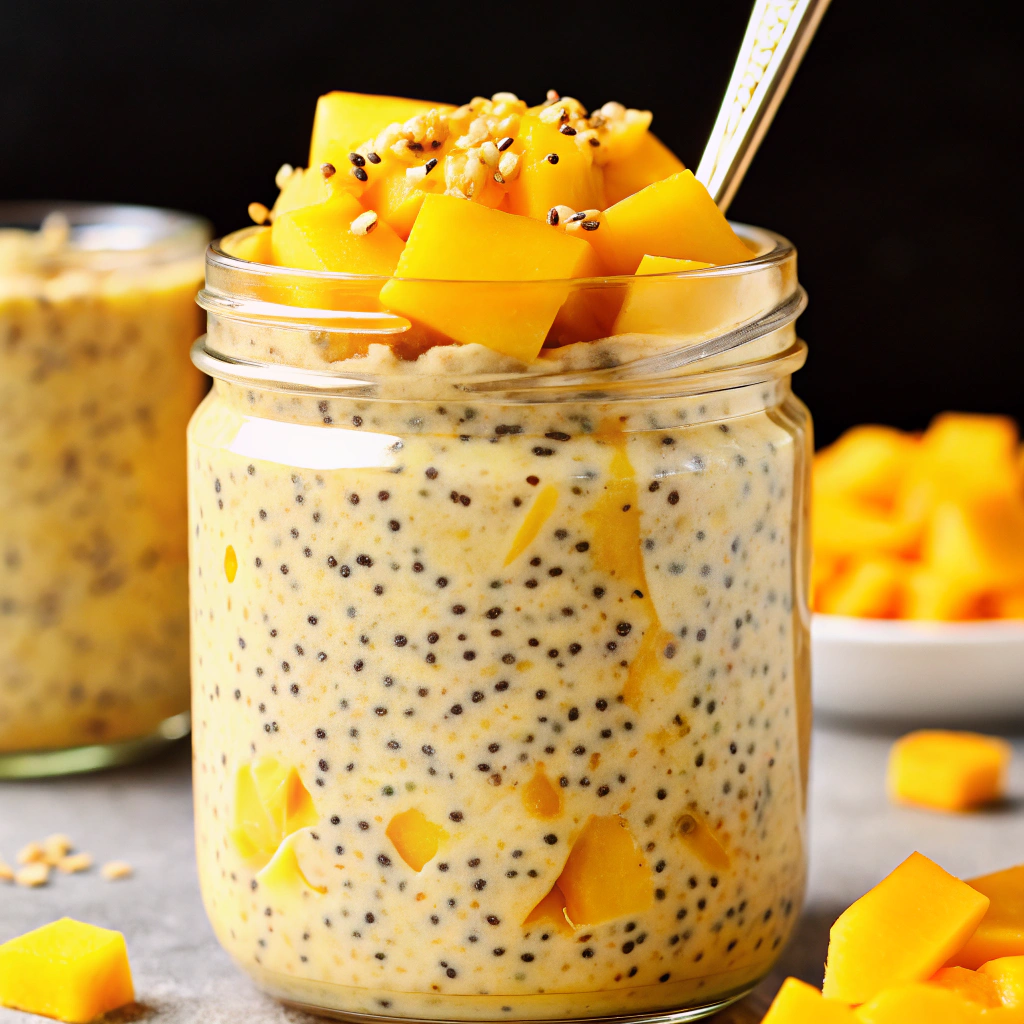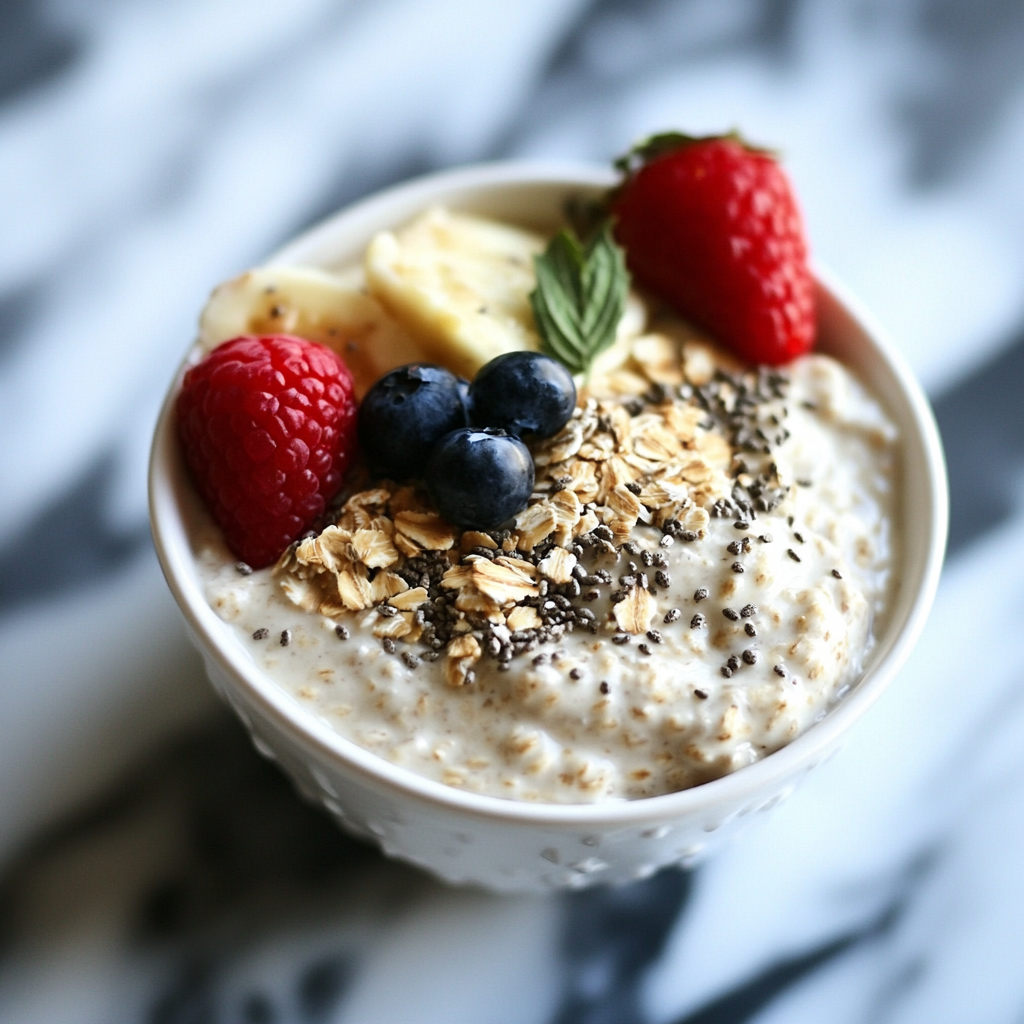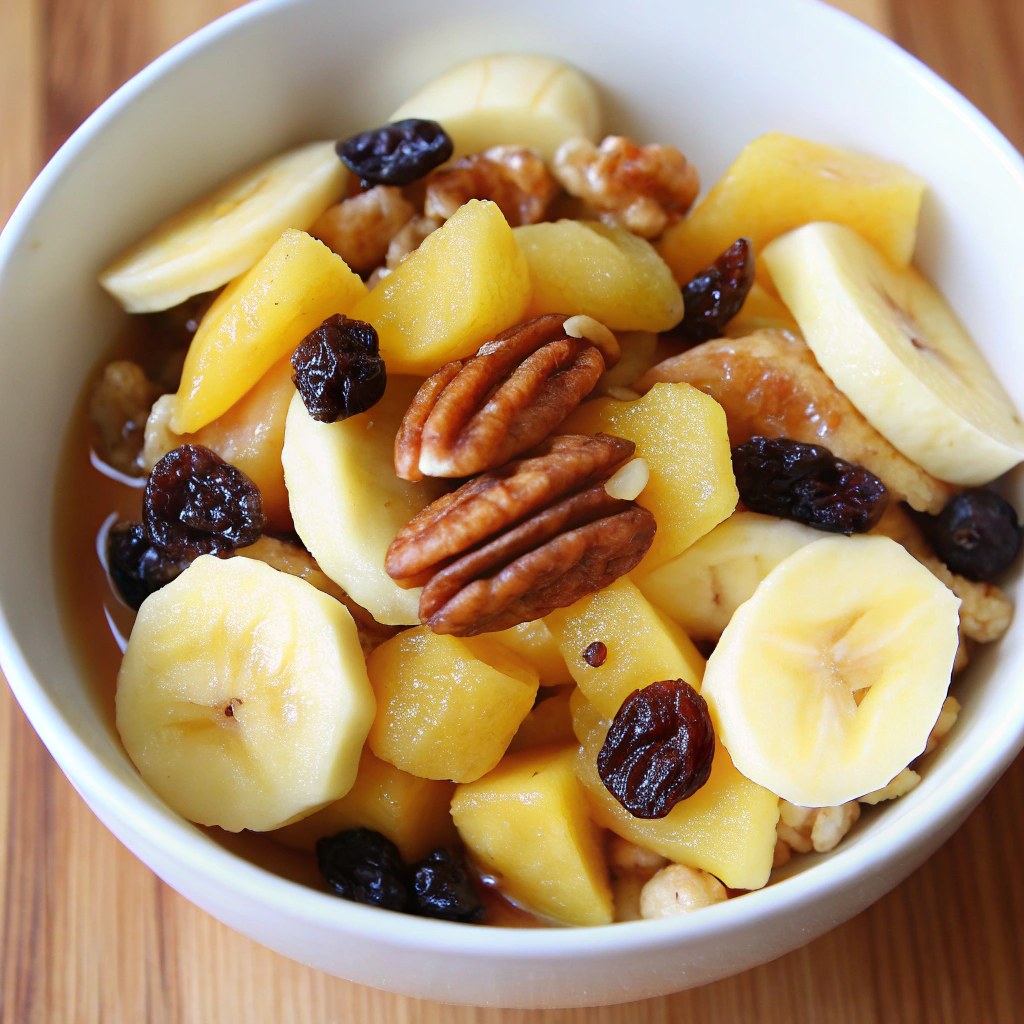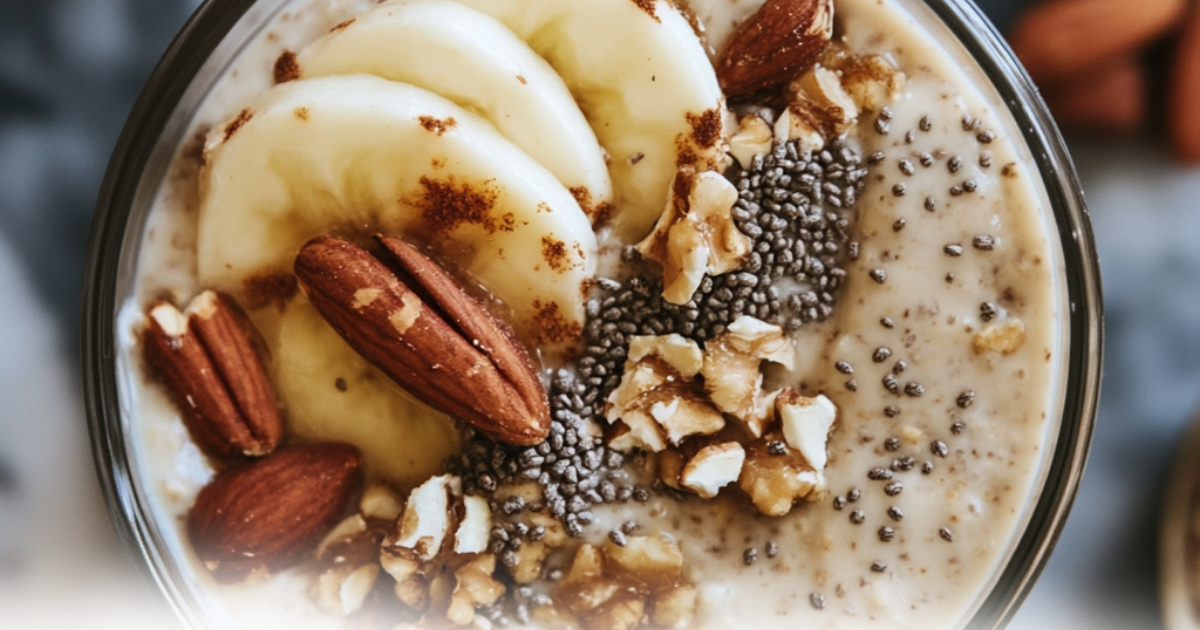If you’re looking for a breakfast option that’s quick, nutritious, and endlessly customizable, overnight oats may be your new best friend. But you might be wondering, “Are overnight oats actually healthy?” Packed with fiber, protein, and essential nutrients, they’re touted as one of the healthiest breakfast choices around. This article dives into their benefits, potential drawbacks, and whether they live up to the health claims.
Table of contents
What Are Overnight Oats?
Definition and Preparation
Overnight oats are a no-cook breakfast option made by soaking rolled oats in liquid—like milk, yogurt, or plant-based alternatives—overnight. This process softens the oats, making them ready to eat by morning. The best part? You don’t need a stove or microwave to enjoy them. They’re often stored in mason jars or other portable containers, making them perfect for busy mornings.
Unlike traditional oatmeal, which is cooked and served hot, overnight oats are served cold, offering a creamy texture that’s more like pudding. The simplicity of preparation has made them a hit among those juggling packed schedules or meal-prepping enthusiasts.

Comparison with Traditional Oatmeal
While both traditional oatmeal and overnight oats share the same nutritional foundation, their preparation methods offer distinct advantages. Traditional oatmeal requires heat and time, which may not suit everyone’s lifestyle. On the other hand, overnight oats save time and maintain more of their natural nutrients since there’s no heat to degrade sensitive vitamins.
Additionally, overnight oats often include a mix of ingredients like fresh fruit, nuts, seeds, and natural sweeteners, boosting their flavor and nutritional value. With endless variations, they easily fit into dietary preferences like vegan, gluten-free, or high-protein lifestyles. Whether you prefer the warm comfort of oatmeal or the chilled convenience of overnight oats, both can be part of a balanced diet.
Health Benefits of Overnight Oats
Impact on Digestive Health
Overnight oats are a boon for your gut. Thanks to their high fiber content, they support healthy digestion by promoting regular bowel movements and feeding the good bacteria in your gut. The soaking process makes the oats easier to digest, especially for those with sensitive stomachs. Soluble fiber, like beta-glucan, not only aids digestion but also helps regulate blood sugar levels—a key factor for long-term health.
For anyone dealing with digestive issues like bloating or irregularity, overnight oats can be a gentle and effective solution. Pairing them with probiotic-rich ingredients, such as kefir or yogurt, can further enhance gut health.

Role in Weight Management
If you’re trying to shed a few pounds, overnight oats might just be your secret weapon. They’re incredibly filling, thanks to their fiber and protein content, which help keep hunger pangs at bay. Unlike sugary cereals or pastries, overnight oats provide slow-digesting carbohydrates that sustain energy without causing blood sugar spikes.
Want to make them even more weight-loss friendly? Stick to natural sweeteners like honey or stevia and load up on low-calorie toppings like berries or sliced almonds. With these tweaks, overnight oats can be a satisfying addition to your weight-management plan.
Boosting Energy Levels
Ever feel sluggish in the morning? Overnight oats might help with that, too. As a source of complex carbs, they provide a steady release of energy to fuel your day. Pair them with high-protein ingredients, like a scoop of whey protein or nut butter, for a breakfast that keeps you energized until lunchtime.
Plus, the mix of vitamins and minerals in oats—especially magnesium—supports muscle function and reduces fatigue. No wonder so many athletes and busy professionals swear by this breakfast staple! So, are overnight oats actually healthy? The answer is a resounding yes, especially when it comes to energy and endurance.To see how creative you can get, check out Best Fruit for Overnight Oats.
Potential Downsides and Considerations
Common Additives and Sugar Content
Although overnight oats are often celebrated for their health benefits, not all recipes are created equal. Many store-bought or pre-made options contain added sugars, syrups, or artificial flavorings. These additions can quickly turn a healthy meal into a calorie-laden sugar bomb. If you’re preparing your own, opt for natural sweeteners like honey or fruit instead of processed sugars.
Even homemade versions can sometimes lean toward indulgence if you’re not mindful of portion sizes. For example, adding too much nut butter or chocolate chips may offset the nutritional benefits. Moderation is key, especially if you’re watching your calorie intake.
Allergies and Food Sensitivities
For those with food allergies or intolerances, certain overnight oats recipes may not be suitable. Oats themselves are naturally gluten-free but can often be cross-contaminated during processing. If you’re sensitive to gluten, always check for certified gluten-free oats.
Additionally, ingredients like dairy-based yogurt or certain nuts may trigger allergic reactions for some individuals. Fortunately, there are plenty of substitutions available, such as almond milk, coconut yogurt, or sunflower seed butter, to ensure everyone can enjoy this versatile breakfast.
Are overnight oats actually healthy? They can be, but tailoring the recipe to your dietary needs is crucial.
Best Practices for Making Healthy Overnight Oats
Healthy Ingredient Combinations
Crafting the perfect overnight oats recipe involves choosing ingredients that not only taste great but also maximize nutritional benefits. Start with a base of rolled oats and combine them with a nutrient-rich liquid like almond milk or Greek yogurt. From there, add fruits such as berries or bananas for natural sweetness and a boost of vitamins.
For a protein-packed breakfast, mix in chia seeds, flaxseeds, or a scoop of protein powder. Want an extra crunch? Toss in some nuts or unsweetened coconut flakes. These additions not only enhance the flavor but also keep you fuller for longer.

Tips for Storage and Preparation
The beauty of overnight oats lies in their convenience, but proper preparation is essential for the best results. Always use a sealed container, like a mason jar, to keep your oats fresh. Store them in the fridge for at least 6-8 hours to ensure they soften fully.
Batch-prepping for the week can save you even more time. However, it’s best to add fresh fruits or toppings right before serving to maintain their texture and flavor. If you prefer warm oats, a quick zap in the microwave will do the trick without compromising the creamy consistency.
For more delicious breakfast ideas, check out the Mango Overnight Oats Recipe on Zena Recipes.
Common Myths About Overnight Oats
Debunking Popular Misconceptions
It’s no surprise that overnight oats have sparked a mix of truths and myths. One common misconception is that overnight oats are less nutritious than cooked oats. In reality, the soaking process preserves more heat-sensitive nutrients, such as B vitamins. This makes them just as healthy—if not more—than their cooked counterparts.
Another myth is that overnight oats are loaded with carbs and unsuitable for weight loss. While it’s true that oats are a carbohydrate-rich food, they’re also packed with fiber and complex carbs that digest slowly, keeping you full for hours. Pairing them with protein-rich add-ins like Greek yogurt or nut butter creates a well-balanced meal.
Scientific Evidence vs. Claims
Some people question, “Are overnight oats actually healthy?” due to concerns about anti-nutrients like phytic acid. While phytic acid can reduce the absorption of certain minerals, soaking oats overnight significantly reduces its levels. This makes the oats easier to digest and their nutrients more bioavailable.
Claims that overnight oats are “unhealthy” often stem from recipes overloaded with sugary or processed toppings. Sticking to natural ingredients ensures that overnight oats remain a wholesome choice. Science supports their health benefits, so these myths shouldn’t discourage anyone from enjoying them.
FAQs About Overnight Oats
Can Overnight Oats Help with Weight Loss?
Yes, overnight oats can support weight loss when prepared thoughtfully. Their high fiber and protein content keep you full longer, reducing the temptation to snack. For the best results, use portion control and limit calorie-dense toppings like syrup or chocolate chips. Choosing nutrient-dense add-ins like chia seeds and fresh fruit can make this breakfast a weight-loss ally.
Are Overnight Oats Safe for Diabetics?
Absolutely! Overnight oats have a low glycemic index, meaning they release sugar slowly into the bloodstream. This helps prevent blood sugar spikes, making them a safe and satisfying option for diabetics. To enhance their benefits, pair oats with protein-rich ingredients like almond butter or unsweetened Greek yogurt.
By addressing these common questions, it’s clear that the answer to “Are overnight oats actually healthy?” is a firm yes—when prepared with care and balance.
Recipes and Customization Ideas
Top 3 Healthy Recipes
Creating delicious and nutritious overnight oats is simpler than you think. Here are three tried-and-true recipes to get you started:
- Berry Bliss Overnight Oats
Combine ½ cup rolled oats, ½ cup almond milk, and ¼ cup Greek yogurt in a jar. Stir in a handful of fresh mixed berries, a tablespoon of chia seeds, and a drizzle of honey. Refrigerate overnight, and top with a sprinkle of nuts before serving. - Peanut Butter Banana Delight
Mix ½ cup oats, ½ cup unsweetened oat milk, and 1 tablespoon of natural peanut butter. Slice half a banana and layer it in. For extra protein, add a teaspoon of flaxseeds. Chill overnight, and enjoy a creamy, satisfying breakfast. - Tropical Mango Overnight Oats
Stir together ½ cup oats, ½ cup coconut milk, and ¼ cup diced fresh mango. Add a teaspoon of shredded coconut for a tropical twist. Refrigerate overnight, and garnish with more mango chunks in the morning.
These recipes are a great way to answer the question, “Are overnight oats actually healthy?” Each version is packed with fiber, protein, and natural sweetness.
Flavor Variations for Different Diets
Overnight oats are incredibly flexible, making them suitable for any diet. For a high-protein option, mix in whey or plant-based protein powder. If you’re following a vegan diet, use non-dairy milk and plant-based yogurt. Add matcha or cacao powder for an antioxidant boost, or go savory with spinach and feta.
Whether you prefer fruity, nutty, or savory, there’s a version of overnight oats that will fit your preferences. With so many options, it’s easy to see why this breakfast is a favorite for those aiming to eat healthily while keeping things tasty and versatile.

